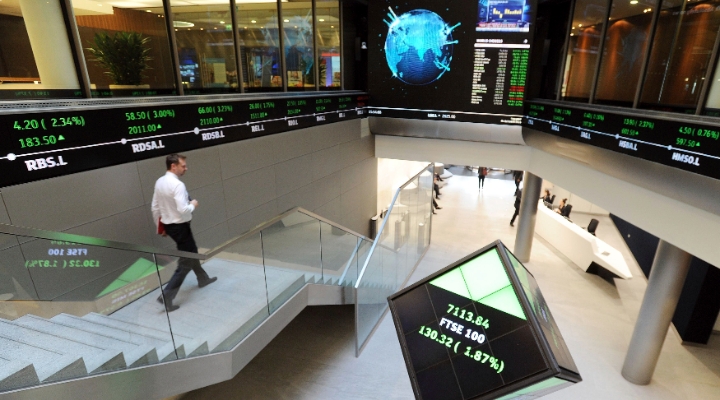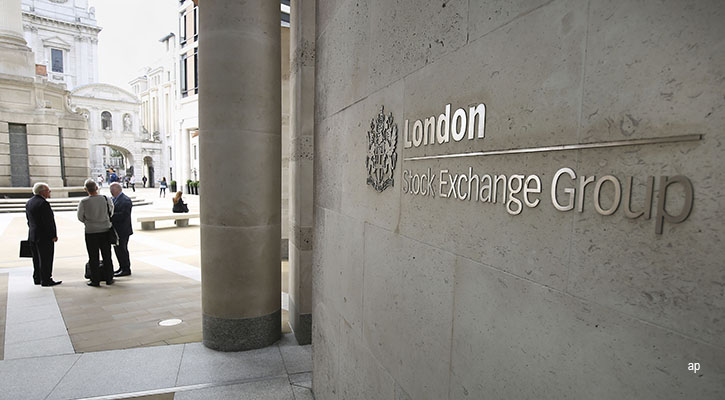
Governance often ends up as the silent "G" in ESG, but it is a key element of sustainable investing. How well a company is governed, and how well it manages external (and internal) governance risks, affects both its longer-term prospects and your returns too.
Listing rules in the UK are currently being reviewed, and governance is an important part of this, as my colleague James Gard explained this week.
To that end we've used Morningstar Sustainalytics' Governance Risk Score to assess just how exposed FTSE 100 companies' revenues are to governance-related issues – but also how well their leadership teams manage ESG risk overall.
On the regulatory side, to be listed on the London Stock Exchange and included in the FTSE 100, companies must have certain governance procedures in place in areas such as auditing and board structures. So when pitted against the Governance Risk Score scale, such companies often score better than smaller but similar companies.
The Sustainalytics scores are displayed as a number between 0 and 100, though most scores range between 0 and 25. For FTSE 100 companies, the highest score is 12.64, and belongs to mining giant Glencore (GLEN).
This score measures the degree to which a company's economic value may be at risk because of governance factors. Governance risk represents unmanaged governance risk exposure after taking into account a company's management of such risks.
However, Morningstar Sustainalytics also takes into account how well these risks are managed by the company in its overall ESG Risk Management Classification. To take Glencore as an example once more, its management is found to be Strong (over Weak and Average). This score can be a helpful guide, especially when considering companies that operate in sectors considered to be morally or ethically, or environmentally high-risk.
This also goes for the second- and third-highest scoring companies: British American Tobacco (BATS) and Lloyds Banking Group (LLOY). Admiral (ADM) is considered to have Average ESG risk management, and, as it's number four in terms of governance risk-exposed revenue, is the company with the highest score among those with average management.
In the FTSE 100, 20 stocks are classified as having average ESG risk management. The largest by market capitalisation is betting company Flutter Entertainment (FLTR), which has by far the highest risk exposure in the consumer cyclical sector.
The next two by market cap are Ashtead (AHT) and Sage (SGE), both rated by Morningstar (Ashtead is trading at fair value while Sage is slightly overvalued, Morningstar analysts say).
While the management of risk is considered to be average for these, both have relatively low exposure to governance risk, at 5.34 and 4.92, respectively. For reference, the portfolio governance risk score of a FTSE 100 tracker fund is around 6.70.
Breaking down the average scores of each sector shows just how varied each category can be. The largest disparity is basic materials – the average score for the eight companies in this sector is 5.40, but this ranges from one of the overall lowest-scoring companies, Mondi (MNDI), at 2.50, to highest-scoring Glencore at 12.64.
At the opposite end, the utilities category is the narrowest between minimum and maximum (a standard deviation of 0.44 for those interested). The average score for the five FTSE 100 utilities firms is 4.30.
The largest sectors are consumer cyclical (17 stocks), financial services (17 stocks) and industrials (16 stocks). The first two sectors have particularly large spreads, but financial services firms have by far the highest average governance risk score.
Compared with the scatterplot higher up, the financial services companies in green account for several of the higher-risk companies, explaining the average of 9.02. Aviva's (AV.) low score helps offset some of this at 5.04.
What Next for Governance Risk Management?
Earlier this week, Morningstar's director of policy research Andy Pettit wrote about the changes coming for product governance and the declining attractiveness of the London Stock Exchange as a listing venue of choice for public companies.
The UK Corporate Governance Code, or CGC, is a key part of UK listing rules and the Financial Reporting Council is expected to publish an updated version of the code imminently. Transparency and disclosure are key tools to balance the risks of a new regime, providing enough information and the chance to influence companies' behaviour. Morningstar Sustainalytics' data can also assist in building this picture.
But Pettit also highlights thatthe FRC is keen to explore ways of ensuring reporting requirements and guidance are proportionate, and maintaining effective corporate governance and stewardship to promote growth and competitiveness.
To that end, it also wants to engage with stakeholders on a review of the UK Stewardship Code, as envisaged in the white paper Restoring Trust in Audit and Corporate Governance, including understanding how it works in practice and what changes may be required.




























